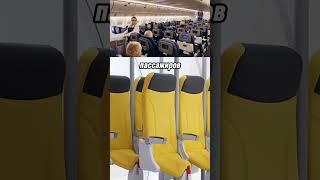Комментарии:

Yours course was very helpful to me sir i am grateful to you
Ответить
there is little bit mistake except of switching terminology you can say there is trap generated in a program goto kernel mode from user mode as it is taught me by my class teacher thanks else everything you guide right sir thanks!
Ответить
Great explaination sir 😊
Thank you 🙏

System Call Interfaces (SCI) are the only way to transit from User space to kernel space.Not context switching
Ответить
great lecture sir , continue doing the same
Ответить
Why do we switch from the user's stack to a kernel stack when we enter the kernel ( e.g. for a system call ) ?
@Neso Academy

The Best details concepts I have ever watched. 🤩😍🎉✨
Ответить
Nice lectures 👍👍 sir you are clearing all my doubts
Ответить
Damn sys call for each and every step
Ответить
Aren't system calls also how a program signals interrupt.
Ответить
So perfect
Ответить
Worked, thx
Ответить
You guys are doing such a great work but I'm extremely disappointed that after certain chapters you asked for fuel ⛽.
We are completely dependant to your video but you made us to pay you🥺🥺.
We already pay in uni college school but that's not worthy enough but we don't have Choice.
Please make everything free.
You guys can also earn through views your videos are worth watching.

Switching User mode to kernel mode called as System Call Interfaces (SCI) Not context switching by the time, context switching will happen while switching to another process
Ответить
don't you need to close the input file?
Ответить
⁰⁰⁰⁰⁰⁰⁰pp
Ответить
angel, thank you <3
Ответить
System calls are not created by user program.. they are already available with os
Ответить
What I learnt from the lecture:
User mode and kernel mode refer to two different modes of operation for a computer's processor and operating system.
User mode is the mode in which user applications and programs operate. In user mode, the processor can access only a limited set of resources and instructions, which are defined by the operating system. This includes memory, input/output devices, and CPU registers. User-mode applications do not have direct access to the system's hardware or kernel memory, and any attempt to access such resources will result in an error.
On the other hand, Kernel mode is a privileged mode in which the kernel operates. In kernel mode, the processor has access to all system resources, including hardware devices and kernel memory. This allows the operating system to perform low-level operations and interact with hardware devices directly. System-level processes, such as device drivers and system services, operate in kernel mode.
A system call is a call made by a program to OS in order to access certain resources which are not accessible in the user mode. So in brief, we can say that a system call is special call made by a program to switch from user mode to kernel mode in order to access certain resources. This is known as mode-shifting, not context switching as the instructor mistakenly called it context switching. The term "context switching" usually refers to the process of saving and restoring the context (i.e., state) of a process or thread so that it can be temporarily suspended and later resumed by the operating system. The term "mode switching" or "mode transition" may be more appropriate to describe the process of switching from user mode to kernel mode and back again.
When a user-mode program makes a system call to the operating system, the following steps occur:
1. The user-mode program issues a system call request, typically through a library function provided by the operating system or through an interrupt instruction.
2. The processor switches from user mode to kernel mode, which involves saving the current state of the user-mode program, including its register values and program counter, onto the kernel stack.
3. The operating system identifies the requested operation, validates the arguments passed by the user-mode program, and executes the operation on behalf of the user-mode program. This may involve allocating or releasing resources, modifying data structures, or performing I/O operations.
4. Once the operation is completed, the operating system saves the results of the operation, restores the saved context of the user-mode program from the kernel stack, and switches back to user mode.
5. The user-mode program resumes execution at the point where the system call was made, and the results of the system call are made available to the program.

Why you said you you instead of saying operating system I wan to know why properly my imagination wrong 😢 ????
Ответить
👍👍👍
Ответить
Very well explained
Ответить
Thanks!
Ответить
Umm it is difficult to understand that how to create an input or output file or copying data 😢
Ответить
Your explanation is so easy to understand the topics which appears difficult 😊❤
Ответить
There are 2 modes of execution for a program:
1) User mode:
- Do not have access to resources like memory or hardwares
- When a program crashes, the entire system will not break down
2) Kernel mode:
- Privilidged mode
- Have access to resources
- When a program crashes, the entire system breaks down
Because user mode is safer, most programs run in user mode. But some programs might need access to resources, so they will make a call to the OS to request for these. This call is system call.
When the OS receives the system call, it will change the mode of the program to kernel mode. This is called context switching.

Thanks a lot for the nice explanation❤
Ответить
You have explained this complex topic in the most amazingly simple manner, excellent teacher kind sir!
Ответить
Hi thanks for your amazing explanation, i have a question. It means that for all the commands and operations which are in user mode, the system call is being used? And is it related to the CPU? I mean if this happens, it takes so much time from the cpu to do these system calls.
Ответить
What is call 21?
Ответить
bohut bhadiya videos bna rhe ho
thank you sir

There are 2 modes...
1.user mode-mode bit 1
2 .kernel mode-mode bit 0
User mode:
It doesn't contain any resourses.
It's mode bit is 1
If the program crashes entire system is not collapsed.hence,it's safe mode to use
Kernel is priviliged mode
Bit mode is 0
If program crashes whole sys collapses
So not safe,recommended to use

Thanks
Ответить
Had to rewatch this several times since it's a difficult topic for beginners, but understood everything in the end. Amazing how just one video gives so much info.
Ответить
Thank you
Ответить
tyyyyy i love india!
Ответить
I watch this video for 2 hours, I can't focus😢😢😢
Ответить
User mode and kernel mode is cpu execution mode so,
Context switching is can be triggered by alot of things such as interrupt handling in that case context switch may occur for example if there were process of iowaiting state then disk controller will trigger interrupt send to cpu and interrupt handler invoked causing context switching.
Context switch is not only for kernel user mode

you repeated 10 times the same thing !!! thank you for losing my time, wanted to learn about system calls got told about kernel mode
Ответить
thnx sir
Ответить
wow❤
Ответить
I thought that a process can access its own virtual address space without “mode shifting” and hence, no system call required or do I’m wrong ??
Ответить
Any University of Johannesburg students here?
Ответить
Neso is carrying the responsibilities of all the engineering students, across the globe!!🔥
Ответить
thank you bro keep it up
Ответить
I cannot thank you enough for the amazing lectures and discussions! The depth of understanding I’ve gained in this course has exceeded my expectations, and I appreciate all the effort you’ve put in. Thank you for everything!
Ответить
Thank you so much, sir! Your guidance has been incredibly helpful, and I truly appreciate your patience and clear explanations. You're amazing! 😃
Ответить





![[snowline] 동계캠핑 바닥공사는? #snowline #스노우라인 #캠핑 #캠핑용품 #캠핑장비 #동계캠핑 #캠핑영상 [snowline] 동계캠핑 바닥공사는? #snowline #스노우라인 #캠핑 #캠핑용품 #캠핑장비 #동계캠핑 #캠핑영상](https://rtube.cc/img/upload/TVkyOXhCTnhFSW8.jpg)




















